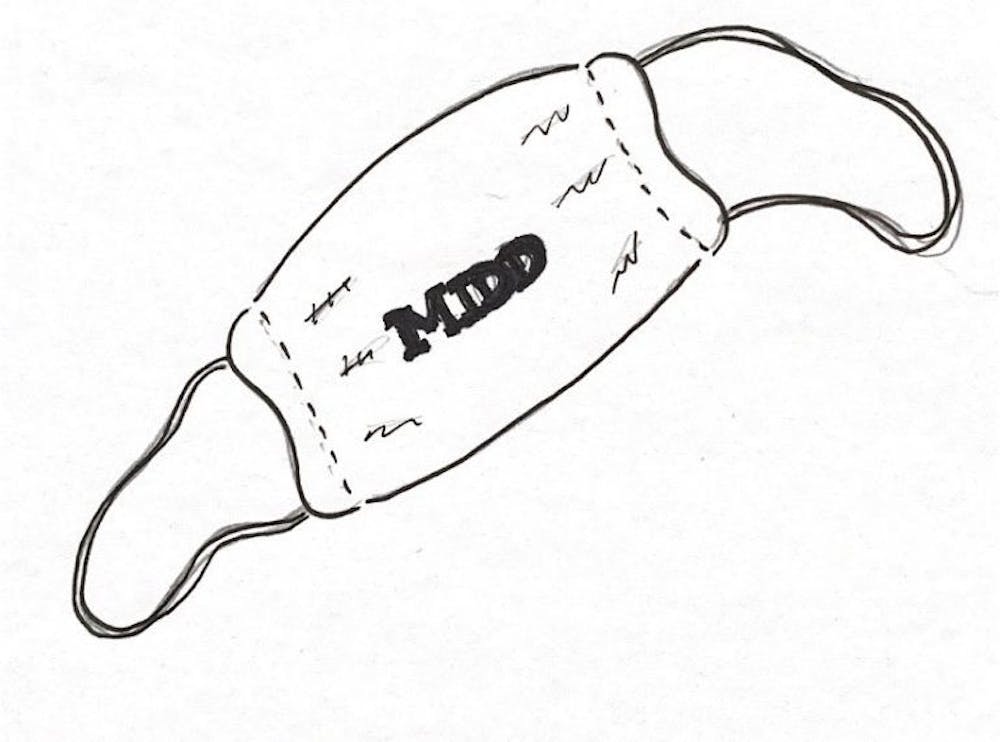Less than 24 hours after I got my wisdom teeth pulled out, I made out with John in the lobby of a Marriott Hotel.
Navigating a numb tongue between puffy cheeks and a swollen jaw, I somehow managed to French kiss the hell out of him without ripping apart the stitches that sealed my inflamed gums (note to past-self: you should’ve listened to the hotelier’s pleas — get a room! But, much to the relief of my parents, who are undoubtedly reading this — fear not, I was a good girl).
John pulled away from my lips, emerald eyes unraveling the feelings I had curbed for months. He laced his thumb through the belt loop of my light-wash jeans, drew me in closer, gently but with purpose, and planted his hands on the small of my back, covering nearly its entire surface area.
“Maria,” he began, stripping me of my guard, “I love you.”
Paralyzed, I tried to muster the courage to repeat those eight letters back to him and fasten an additional “too” on the end.
My fingers, shaking with adrenaline, wanted to reach out and cup his jawline and tell him that I loved him back, I really did. He needed to know that his handshake when meeting my father had been flawless — firm but humble — and that I had stowed in a mason jar all the notes we had passed between each other and, from the moment we first kissed on February 11, I knew he would be worth my time.
But instead, I settled on a far more flippant response, one that relied on bargain-brand humor rather than an authentic articulation of my feelings.
“John,” I whispered, “I love me too.”
Truly a profound expression of love, Maria, albeit self-love.
Despite our connection and, later, an intimate moment in which I finally said I love you too, the “we” that I thought to be indestructible broke down (if you’re dying to know the details of the demise, feel free to email me for more information).
We unpacked our relationship on the night we finally went our separate ways. Sitting on his bed’s plaid comforter, we rehashed our finest moments and, more solemnly, appraised the current state of our withering connection.
“You know I love you, Maria.” His voice wavered as he enunciated the three syllables of my name. “You’re the right person, but it’s the wrong time.”
Shouldn’t love endure despite a situation rather than because of favorable conditions?
“What am I supposed to do, Maria? Really.”
I don’t know, maybe fight for me? Just a thought.
And, because he didn’t, we ended things — a flickering flame only one of us was willing to protect from the wind.
While we have both since moved on — me dating a variety of guys and him in a relationship with a low-level influencer who looks like the Upper East Side version of myself (but, really, who’s keeping track?) — John has left me with a persisting insecurity: is there such a thing as “right person, wrong time?”
Save for a few specific situations, including mental health struggles and deeply-rooted traumas, I am inclined to say the right person will always fight for you.
The concept of “right person, wrong time” implies that there are people who are justified in “saving us for later.” They have unilaterally decided that we will, at some indeterminate point in the future, fit into their lives. But how long are we supposed to hang on for?
Is it when we live in the same city? When our partner feels secure in their accomplishments? When they have “found themselves” and are now ready to return to our comfort?
With the right person, self-growth and romance are not mutually exclusive.
In past years, I have refrained from letting genuine connection into my life for fear that I was not in an ideal emotional place. Vulnerability, I contended, could only occur when I was on my A-game, a wholeheartedly lovable and carefree girl. While personal progress is, of course, a largely independent process, the people who help us build confidence, challenge us to reach our goals and still appreciate us at our low points are those who have consciously decided to show up.
In other words, they have deemed that an investment in their partner is an investment in an enduring “us.”
By this age, we are relatively skilled prioritizers. Despite juggling academics, sports and jobs, we still have stable friendships. While romance requires a different type of sacrifice than platonism (note: not necessarily a greater intensity of investment), the reasoning remains constant: we make time for those who matter. Few of us have told our friends that they are the “right friend, but it’s the wrong time” (I can barely write that with a straight face). So why do we say that in relationships?
When our partner uses the “right person, wrong time” narrative, perhaps it functions more as an excuse than a reason.
Whether this is because they would prefer to focus on themselves, travel the world or explore other options, there is an explicit, although oftentimes silent, choice to no longer prioritize us. This does not necessarily mean that they don’t care about our happiness but rather they are unwilling (or lack the energy) to allocate time to us.
Although context matters, people who push back on constraints (i.e. distance, timing) that have typically inhibited relationships have, at least through action, prioritized us. And so, when confronted with those who say they need to do their own thing, believe them. But don’t accept a place on the back burner.
If there’s one thing I’ve learned throughout the years, it’s that charging headfirst at a red flag doesn’t leave us feeling fulfilled at the end of the day.
MASK OFF, MIDD: let that sh*t go.
Maria Kaouris is a member of the class of 2021.
MASK OFF, MIDD: Right person, wrong time?

Comments



